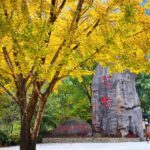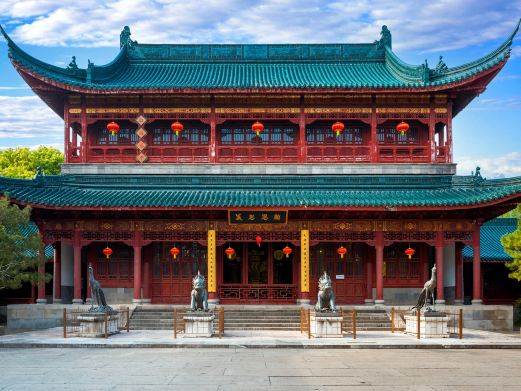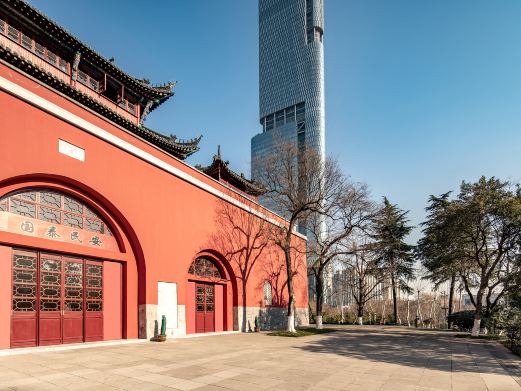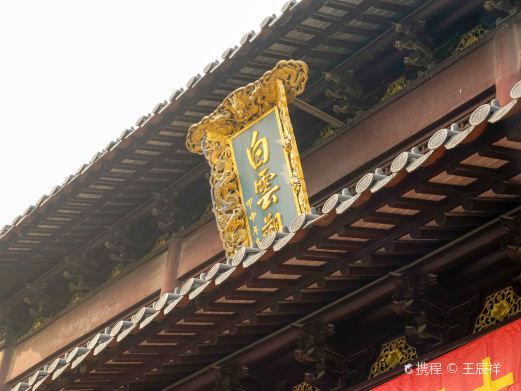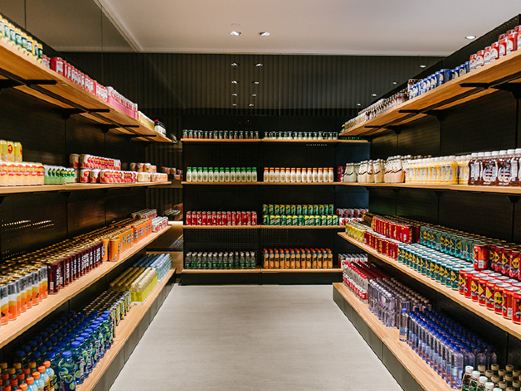The Wuxiang Mountain scenic area is located in the new south urban area of Lishui District, Nanjing City. Nanjing Metro Line S7 has Wuxiang Mountain Station. It is mainly composed of mountains such as Duchengs han, Wuxiang Mountain, Longming Mountain, and Zhujian Mountain. The total area is about 3 square kilometers (of which the core area is 2.5 square kilometers), and the average altitude is about 100 meters (the highest point of the main peak Duchengs han is 210 meters). The forest coverage rate is 95.6%. In 2015, it was approved as a national forest park. In 2017, it was approved as a Jiangsu provincial ecological tourism demonstration area. In 2020, it was rated as a national 3A-level tourist scenic area. It is a great place for seeking ancient charm, vacationing, and outdoor sports in Nanjing. ‘Mountain springs and waterfalls, bamboo seas cuddling with clouds’. The scenic area is full of mountains and lakes, and historical sites are everywhere. The green forests and green bamboos are magnificent. Here, there are not only more than 10 large and small lakes such as Tianchi Lake, Wuxiang Lake, and Longming Lake, but also spectacular pine forest landscapes and bamboo sea landscapes. There are 29 orders, 90 families, and 328 species of wild animals such as macaques and wild boars living here, and there are 121 families, 378 genera, and 557 species of plants such as zelkova trees and liquidambar. The daily average value of sulfur dioxide is 0.003 milligrams per cubic meter, and the daily average value of inhalable particulate matter is 0.03 milligrams per cubic meter. It is a veritable ‘Nanjing back garden’ and just like a fairyland on earth. The mountains and waters follow the heart, and nature is without thoughts. Wuxiang Mountain has been known as the ‘first scenic spot in Lishui’ since ancient times. ‘The mountain is named after Wuxiang Temple, and the temple is surrounded by a truly strange scenery in the mountains’. The ancient Wuxiang Temple was built in the Six Dynasties. During the Xianchun period of the Song Dynasty, there were nearly a thousand monks in the temple. The name Wuxiang comes from the Buddhist scripture ‘Mahāmegha-sūtra without thoughts’. Later, Wuxiang Mountain was also named after it. In the Yuan Dynasty, Wuxiang Mountain was once named Longming Mountain. In history, literati and refined scholars such as Han Xizai, Cui Zhiyuan, Zhou Bangyan, Zhou Lianggong, Tao An, Lin Gudu, and Yuan Mei have all traveled to Wuxiang Mountain and left behind many literary works. Among them are ‘Man Ting Fang – Written in Wuxiang Mountain, Lishui in Summer’ written by Zhou Bangyan, a famous ci poet in the Northern Song Dynasty when he was the magistrate of Lishui, and ‘Notes on Touring Longming Mountain’ written by Tao An, a grand scholar in the early Ming Dynasty, as well as the cliff carvings of Fengquan, Danding, and Wuzunming engraved by Wang Congshan, the magistrate of Lishui County in the Ming Dynasty. At present, with the ancient Wuxiang Temple as the core, the scenic area has initially formed three major areas: the landscape around Tianchi Lake, the water entertainment in Wuxiang Lake, and the rural leisure in Muxingu. And it is actively creating six themed tourist trails, including the ecological rural trail along the Zhushui Path, the Wuxiang tracing trail along the Chanji Road, the sports and leisure trail along the Baihu Road, the Zen cultivation and mind-cultivating trail along the Wuxiang Road, the cultural remembrance trail along the Hundred-step Ladder, and the poetry and literature trail along the Caizi Road. These effectively connect landscape nodes such as Liyuan, Cherry Blossom Valley, Dan dang Stone, Wild Boar Forest, Yunhe Pavilion, Homesickness Platform, Qinhu Gang, Caizi Land, Meicheng Thatched Cottage, and Han Xizai’s Reading Platform. Truly making Nanjing Wuxiang Mountain the first ‘zero-pressure’ tourist destination in Jiangnan.
Operating Hours: Open all year round from 09:00 to 17:00
Preferential Policies:
Children: Free admission for children aged 6 years old (inclusive) or under 1.4 meters (inclusive) in height.
Minors: Half-price admission for minors aged between 6 years old (exclusive) and 18 years old (inclusive) with valid identification.
Elderly: Half-price admission for individuals aged between 60 years old (inclusive) and 69 years old (exclusive) with valid ID. Free admission for those aged 70 years old (inclusive) and above with valid identification.
Students: Half-price admission for full-time undergraduate students (excluding adult education students) with a valid student ID.
Local Visitors (Lishui District): Free admission for local visitors from Lishui District with valid identification (such as ID cards, citizen cards, etc.).
Retired Cadres: Free admission with a ‘Retired Cadre Certificate’ and can accompany one person.
Disabled Persons: Free admission for individuals with a valid disability certificate. Severely disabled persons (Disability Level 1 and Disability Level 2) can have one accompanying person enter for free with valid identification.
Military Personnel: Free admission for active-duty military personnel with officer’s ID, civilian officer’s ID, or soldier’s ID. Retired and revolutionary disabled military personnel with valid personal identification.
Fire and Rescue Personnel: Free admission with a valid personal ID.
preferential treatment recipients: Free admission for those with a ‘Jiangsu Province preferential treatment recipient’s pension subsidy certificate’, who must present their personal ID.
Honorary Individuals in Jiangsu Province: Free admission for individuals in Jiangsu Province who have received national awards for voluntary blood donation, voluntary donation of hematopoietic stem cells, and lifelong honorary awards for voluntary blood donation services, with relevant identification.
Wuxiang Mountain
The Wuxiang Mountain scenic area is located in the new south urban area of Lishui District, Nanjing [...]





